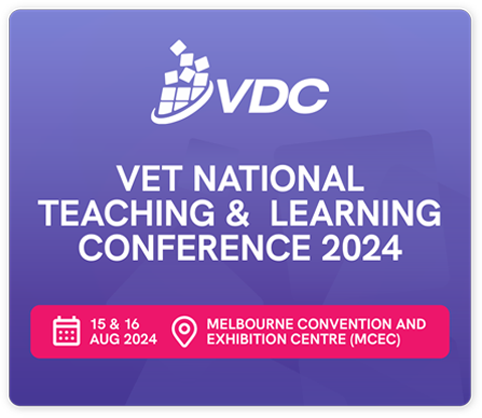In 2021 UNESCO published a preliminary “conversation starter” on micro-credentials authored by Deakin University’s Emeritus Professor Beverley Oliver.
The paper suggests that “acceptance and recognition of micro-credentials by employers and policy makers is hampered because, among other challenges, there is no universally recognised definition that clearly communicates to lay users, particularly learners and employers, what micro-credentials are.”
So, how do we define and characterise them?
As regular readers will be aware, we have devoted a fair bit of attention to micro-credentials over the last couple of years. This latest look at them by Beverley, which you can access from VOCEDPlus here, involves a policy analysis followed by moves towards a proposed ‘universal definition’ of micro-credentials.
The paper draws a distinction between what it calls ‘macro-credentials’: for example, degrees, diplomas, certificates and licences, and ‘micro-credentials’ that are “typically focused on a specific set of learning outcomes in a narrow field of learning and achieved over a shorter period of time.” These credentials encompass traditional learning experiences as well as those “acquired elsewhere, such as in the workplace, through volunteering, or through personal interest learning” and are often promoted as a way to upskill workers.
In Beverley’s view they have the following 4 characteristics. First, they are “a record of focused learning achievement verifying what the learner knows, understands or can do.”
Second, they include “assessment based on clearly defined standards and is awarded by a trusted provider. Third, they have a “stand-alone value and may also contribute to or complement other micro-credentials or macro-credentials, including through recognition of prior learning”, and finally they meet “the standards required by relevant quality assurance.”
Her attempt at a definition is not an attempt to be definitive but is rather an attempt to distil the essence of the published definitions (see Appendix 3 of the paper) and the opinions of experts about what they can ‘agree to agree’ on. However there was a divergence of views on a range of issues amongst these experts, including whether recognition of prior learning should be included, how to describe who were trusted delivery providers and how to address quality assurance issues because “to be accepted and trusted, micro-credentials must be seen to bear the hallmarks of quality credentials.” (A list of the experts can be found in Appendix 1.)
There was a belief that micro-credentials offer “exciting possibilities” and that they offer a way to advance equity agendas, but it’s early days and more research is needed. Finally, the paper suggests that:
“Education changes lives, and micro-credentials, done well, can be a force for good as part of or to supplement and complement formal education systems, and prepare a wider range of learners across the lifespan for better lives and healthier communities. A much-needed step towards advancing these outcomes for all, including the most vulnerable, is to agree on how best to define micro-credentials in ways they are easily and universally understood.”
And there is a webinar to look at too!
You can access a UNESCO YouTube webinar here. It involves some opening remarks by Borhene Chakroun, the Director of the Division for Policies and Lifelong Learning Systems at UNESCO, followed by a presentation by Beverly Oliver herself. It concludes with “a live discussion amongst a panel of experts representing organizations from Canada, Germany, South Africa, Australia, the United Arab Emirates, the United Kingdom and the United States of America. The experts’ insights and viewpoints drew on their own experiences with micro-credentials in their countries or institutions.”
In 2018, VOCEDPlus developed a ‘Focus on’ page on micro-credentials. A short piece by Jenny Dodd in TAFE Director’s Australia’s recent newsletter has focused on micro credentials as well, as have a few in VDC News that you can access here, here and here.
Finally, a recent short ‘provocation’ paper by David Boud and Trina Jorre de St Jorre published in early 2021 in the Journal of Teaching and Learning for Graduate Employability is worth a look as it suggests that the move to micro-credentials also makes us look hard at the adequacy of existing ‘macro-credentials’ in higher education. Likely, however, the same argument David and Trina have raised about higher education qualifications could be applied to VET ones as well.








